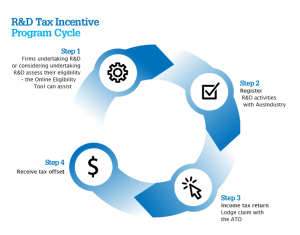At the time of writing this article, on Sunday the 1st of November 2020, Australia has recorded no new cases of locally transmitted coronavirus infection for the first time in five months. Although this is an important milestone for our country’s fight against COVID-19, we must remain vigilant to ensure these results continue well into the future. Nonetheless, it is certainly a privileged situation to be in right now, especially in comparison to the daily struggles of other countries in managing the pandemic.
For an industry that deals in face-to-face visits with both healthy and sick individuals, it is important to assess and manage the effect of the current situation on research and clinical trials.
One could easily be persuaded to think that the impact of the virus on activities, like most clinical trials, that require in-person visits is largely negative. Even more so, when such activities are deemed non-essential (such as most cosmetic trials). Under these circumstances, research sites and trial sponsors should be concerned about recruitment of study participants and strive to approach this in a manner relevant to the current situation. However, there are also some considerations to be made that actually prove to be quite favourable.
Importance of research
Although sometimes undercut by the spread of misinformation, the importance of research during the pandemic has been greatly emphasised. People have become more familiar with some basic concepts around what clinical trials are, how they work, and why they are important in modern society. As a result, the public’s interest towards understanding more about them has increased.
Change of pace and lifestyle
In the last few months, many people have had their daily routines impacted in some regard. Working from home, less commuting to and from work, sadly also job losses, have all contributed to people:
- suddenly having more spare time and/or more flexibility
- looking for something to do and be involved in
- taking interest in new things (i.e. learning new skills, fixing the house, cooking, improving their physical appearance, testing cosmetic products!)
In Australia, a number of provisions should be taken into account when considering a new clinical trial project during COVID:
Ethical considerations
During the pandemic as well as any other point in time, it’s important to continue considering weighing the benefits against the risks when taking part in a trial. According to international standards for Good Clinical Practice (GCP), as long as the risks does not outweigh the benefits, the project should be fine to go ahead. How this is assessed is constantly changing, and will depend on the specifics of your study and the restrictions (or lack thereof) in the locations you wish to run a clinical trial.
Following local government advice
Temporary restriction imposed from local government might be in place at any given time to reduce the spread of the virus. This may include curfews, protective gear, training, gathering restrictions and other preventative measures. These need to be followed to protect staff working at clinical research sites, as well as study participants and their close contacts. It is important to design your clinical trials with these in mind, and discuss current best practices with your local trial sites.
Excluding vulnerable demographics
In the last few months, we have learned that the virus can prove particularly dangerous for people aged over 65 and those with pre-existing health conditions – especially those involving the respiratory system. Therefore, it would be advisable to refrain from enrolling people that match those characteristics to take part in non-essential research projects.
COVID safe research sites
Sites involved in clinical trials should be particularly meticulous about following recommended COVID safe procedures to reduce the risk of spreading the infection. Screens, distancing, sanitization, facial masks, disposable material, should all be used as appropriate to allow conducting study visits in the safest way possible for all people involved.
Appropriate measures in case of exposure
Both sites and sponsors should be prepared to deal with situations where exposure to the virus has occurred and collaborate with local health authorities to protect everyone involved. This also means that projects could be temporarily interrupted or permanently stopped at any given time for the safety of staff, volunteers and their families. Extra time and budget should be built into studies in case of such an event, such that the study results are not overly affected or delayed.
Provided the above aspects have been properly addressed and taken care of, it is currently possible in Australia to conduct cosmetic trials successfully. We hope that the situation will continue to improve until the global emergency is over.




